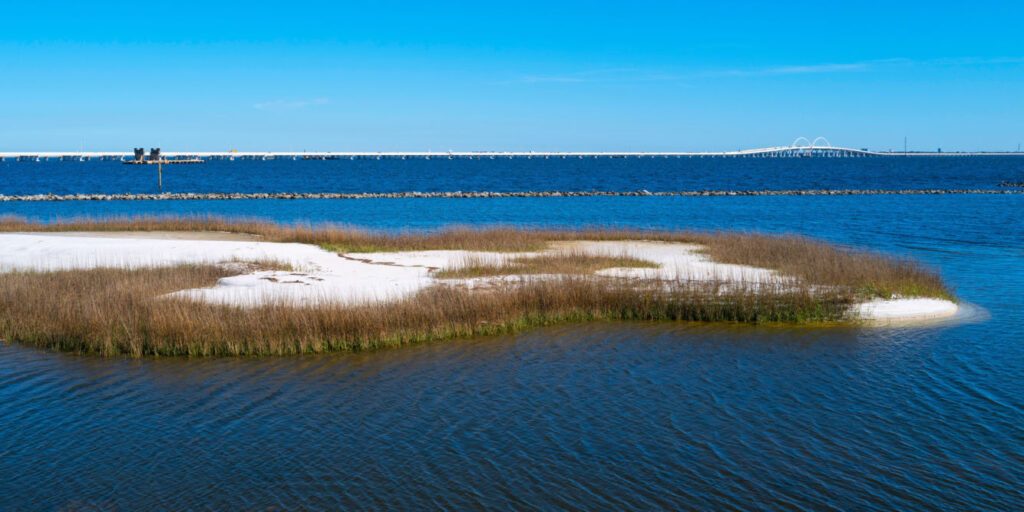Pensacola and Perdido Bays Join National Estuary Program
In a landmark decision for environmental conservation in the Florida Panhandle, the U.S. House of Representatives passed legislation on Dec. 9 that will bring unprecedented federal protection to two of Florida’s vital waterways. The Pensacola and Perdido Bays Estuary of National Significance Act marks the first expansion of the National Estuary Program in over three decades, highlighting the critical importance of these interconnected water systems to the region’s ecology and economy.
U.S. Senators Marco Rubio (R-FL) and Rick Scott (R-FL) introduced the legislation to federally designate the PPBEP to leverage federal, state, and local government funding to address water quality and resource challenges in Pensacola and Perdido Bays.
“I am grateful for the House’s passage of my bill to designate the Pensacola and Perdido Bays Estuary Program,” said Rubio in a written statement. “The EPA’s National Estuary Program has a successful track record of cooperative federalism across the nation, including with the four existing Florida programs. Enrolling the PPBEP into this program will provide critical support for restoration, conservation, and monitoring efforts in Pensacola and Perdido Bays while enhancing economic activity in the Florida Panhandle.”
Scott added, “The Pensacola and Perdido Bays Estuary of National Significance Act will take important steps in our fight to protect and conserve Florida’s environment and natural resources. I am proud that our good bill was passed by the House of Representatives, unanimously passed by the Senate and now heads to the president’s desk to be signed into law—a major win for Florida’s panhandle.”
WHY THIS MATTERS: The designation represents more than just a new title for these waterways. By formally enrolling the Pensacola and Perdido Bays Estuary Program (PPBEP) in the National Estuary Program, the legislation creates a robust framework for environmental stewardship that bridges federal, state, and local efforts. This approach follows the successful model established by Congress in 1987 when the National Estuary Program was first created to support science-based, locally driven environmental initiatives across the United States.
The significance of this designation becomes clear when considering the PPBEP’s track record. Since its establishment in 2018, the program has demonstrated remarkable effectiveness, securing over $30 million for restoration, resilience, and conservation projects within the bay watersheds. The new federal designation promises to substantially amplify these efforts, providing additional resources and support for addressing water quality challenges and enhancing community resilience.
This legislation’s emphasis on cooperative federalism is particularly noteworthy. This approach has proven successful nationwide, including in Florida’s four existing estuary programs. This model recognizes that environmental challenges don’t respect state boundaries, as evidenced by the Pensacola and Perdido watersheds, which connect Florida and Alabama’s ecosystems. The legislation creates a framework for interstate cooperation essential for effective environmental management.
The timing of this designation is crucial from an environmental perspective. Estuaries serve as critical interfaces between fresh and salt water, providing essential habitat for countless species and maintaining water quality. The designation ensures that these functions will be protected through science-based management strategies while supporting the region’s economic activities that depend on healthy waterways.
The economic implications of this designation are substantial. For Northwest Florida, the health of these bays directly impacts tourism, fishing, and various water-dependent industries. The National Estuary Program designation provides a mechanism for balancing economic growth with environmental protection, ensuring that development decisions consider long-term sustainability.
LOOKING AHEAD: The designation promises to transform the management of these vital waterways. It empowers local communities to identify and address natural resource challenges through science-based, community-driven actions. This approach has proven successful in other National Estuary Programs across the country, where local knowledge and federal resources combine to create effective environmental solutions.
Perhaps most importantly, this designation represents a generational investment in environmental stewardship. As Matt Posner, the PPBEP Executive Director, notes, it helps ensure that future generations will enjoy the same quality of life and access to natural resources that previous generations have experienced. The program’s focus on long-term sustainability and community resilience suggests that the benefits of this designation will extend far beyond immediate environmental improvements.
With the bill now heading to President Biden’s desk for signature, the Pensacola and Perdido Bays stand at the threshold of a new era in environmental protection.
